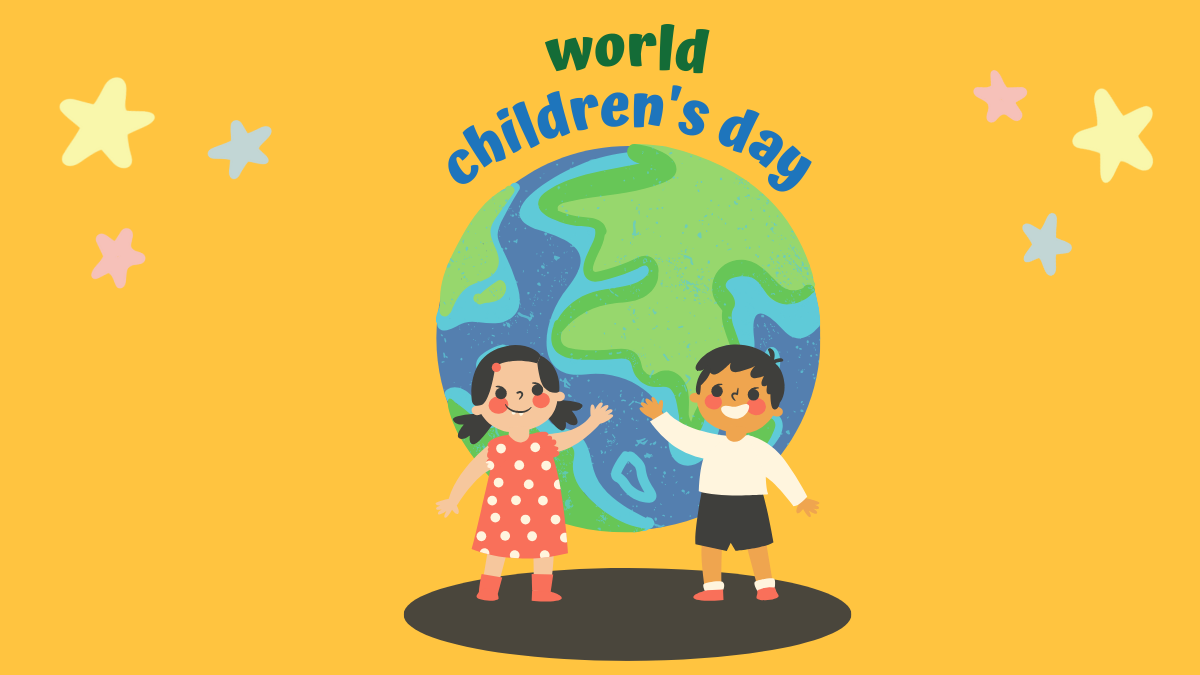World Children’s Day, celebrated annually on November 20, is a significant global event dedicated to promoting children’s welfare, safeguarding their rights, and fostering a brighter future for them. Observed worldwide, the day serves as a reminder of the need to empower children, address challenges they face, and build a more equitable and nurturing environment for the next generation.
The theme for World Children’s Day 2024 is “Listen to the Future,” highlighting the importance of hearing children’s voices and integrating their perspectives into decision-making processes that affect their lives.
History of World Children’s Day
Origins in Universal Children’s Day
The history of World Children’s Day dates back to 1954, when the day was first established as Universal Children’s Day by the United Nations. The primary aim was to encourage international togetherness, raise awareness of children’s rights, and advocate for improving children’s welfare globally.
Significant Milestones
- 1959: On November 20, the United Nations General Assembly (UNGA) adopted the Declaration of the Rights of the Child, a foundational document outlining the fundamental rights all children should enjoy.
- 1989: Thirty years later, the same date marked the adoption of the Convention on the Rights of the Child, a legally binding international agreement that continues to serve as the cornerstone for child rights globally.
- 1990: World Children’s Day began commemorating the anniversaries of both the Declaration of the Rights of the Child and the Convention on the Rights of the Child, reinforcing the global commitment to protecting and advancing children’s rights.
Significance of World Children’s Day
A Platform for Advocacy
World Children’s Day serves as a powerful platform to amplify children’s voices, bringing global attention to the issues that hinder their growth and well-being. These include:
- Educational inequality: Millions of children still lack access to quality education.
- Child labour: Despite progress, child labour remains a pressing issue in many parts of the world.
- Healthcare access: Many children face inadequate access to healthcare, particularly in low-income countries.
A Call to Action
The day emphasizes the role of governments, organizations, and communities in implementing policies and initiatives that safeguard the rights of children. It encourages:
- Protection from harm: Creating safe environments free from abuse, violence, and exploitation.
- Empowerment through education: Ensuring all children receive quality education.
- Healthcare accessibility: Providing comprehensive healthcare to address children’s physical and mental health needs.
Theme for World Children’s Day 2024
This year’s theme, “Listen to the Future,” underlines the importance of acknowledging children’s perspectives and involving them in decisions that shape their world. The theme calls for:
- Empowering children to voice their concerns, aspirations, and ideas.
- Incorporating their insights into policies that impact their lives.
- Creating platforms for engagement, where children can actively participate in global conversations about their future.
Key Objectives of World Children’s Day 2024
- Raising Awareness: Highlighting critical issues affecting children, such as poverty, exploitation, and inequality.
- Encouraging Global Collaboration: Promoting international cooperation to address systemic challenges.
- Celebrating Children’s Potential: Recognizing the contributions and capabilities of children as active members of society.
- Driving Policy Change: Encouraging governments to enact and enforce policies that uphold children’s rights.
How World Children’s Day is Celebrated
Global Initiatives
On this day, UNICEF and other organizations host events, campaigns, and discussions focused on children’s rights and well-being. These include:
- Educational programs in schools and communities to spread awareness.
- Fundraising drives to support children in need.
- Workshops and seminars to train stakeholders on child rights.
Community-Level Activities
- Children’s parliaments where kids engage in debates about their future.
- Cultural performances and art exhibitions showcasing children’s talents and creativity.
- Awareness rallies emphasizing the need for equity and justice for all children.
Summary of the News
| Heading | Details |
|---|---|
| Why in the News? | World Children’s Day 2024 will be celebrated on November 20, focusing on the theme “Listen to the Future” to amplify children’s voices. |
| Theme | “Listen to the Future” emphasizes the need to involve children in decisions shaping their lives and futures. |
| History | – Established in 1954 as Universal Children’s Day by the UN. |
| – 1959: Adoption of the Declaration of the Rights of the Child. | |
| – 1989: Adoption of the Convention on the Rights of the Child. | |
| – 1990: Marked anniversaries of both foundational documents. | |
| Significance | – Advocacy Platform: Highlights issues like educational inequality, child labour, and healthcare access. |
| – Call to Action: Encourages governments and communities to create safe environments and ensure children’s education and healthcare. | |
| Key Objectives (2024) | 1. Raise awareness about challenges like poverty and inequality. |
| 2. Promote global collaboration to address systemic challenges. | |
| 3. Celebrate children’s contributions and potential. | |
| 4. Drive policy changes to uphold children’s rights. | |
| How It’s Celebrated | Global Initiatives: |
| – UNICEF campaigns and educational programs to spread awareness. | |
| – Fundraising drives and workshops on child rights. | |
| Community-Level Activities: | |
| – Children’s parliaments and cultural performances. | |
| – Art exhibitions and rallies for equity and justice. |



 Important Days in March 2026: Check the ...
Important Days in March 2026: Check the ...
 World Wildlife Day 2026: Why Medicinal P...
World Wildlife Day 2026: Why Medicinal P...
 National Science Day 2026: Honouring the...
National Science Day 2026: Honouring the...








